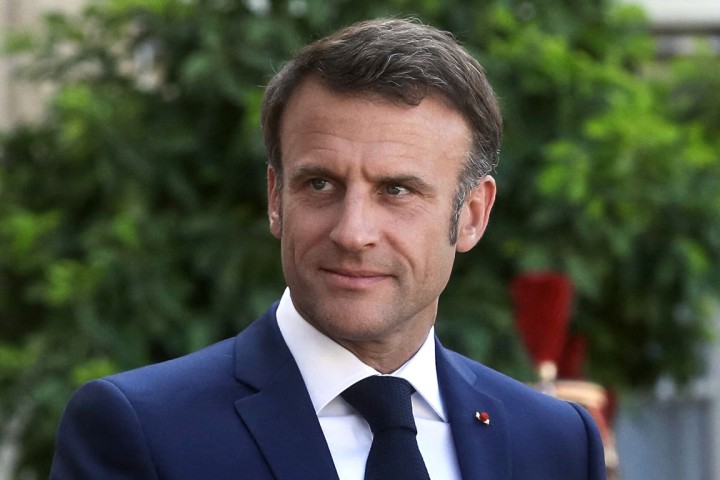French government says low-carbon electricity mix is magnet for foreign investment

French President Emmanuel Macron welcomed 240 French and foreign business leaders earlier this week in Versailles for Choose France, the biggest annual promotional event for the French economy.
This year, around a third of the record €15 billion of foreign investment announced went to projects linked to decarbonisation. For example, tech giant Microsoft announced an investment of €4 billion in new data centres in France.
“Because we have decarbonised electricity,” said Roland Lescure, Minister Delegate for Energy and Industry, said when asked why the company chose
France by FranceInfo on Monday.
“The French mix is a very strong element of the country’s attractiveness, and when we talk to different business leaders, it’s the main point” President Emmanuel Macron’s staff said in a press briefing on Tuesday.
But the reality is more complex. The decarbonised electricity mix is attractive, but the price of electricity, the reliability of the grid and other criteria are just as important.
Decarbonisation
Every year, EY publishes a ranking of the most attractive countries in Europe for investment. “We take a census of investment projects and interview managers to find out what they favor,” explains Jérémie Haddad, energy analyst at EY.
In 2023, and for the 5th year running, France tops the list, with one of every two investments in France going into industrial projects.
“Overall, in 2023, France’s low-carbon mix is an advantage in European competition”, Haddad add, as evidence by the investments of billions of euros announced during Choose France by the Americans Tech companies Amazon (€1.2 billion) and Equinix. Spanish fertiliser producer FertigHy also announced a €1.3 billion investment to host Europe’s first low-carbon fertiliser production plant.
France does indeed boast a low-carbon mix. French electricity’s carbon intensity is around 60g of CO2 per kilowatt-hour (kWh). A huge difference when compared with Spanish (200g CO2/kWh) or German (350g), according to the European Environment Agency.
However on the same week as its French investment announcements, Jeff Bezos’s company also declared an investment of €7.8 billion in Germany, to strengthen its cloud infrastructure.
Equally Microsoft’s investments in France are not so spectacular or unusual compared to the €2.2 billion it revently invested in Malaysia for the construction of data centers, following other ones in Indonesia and Thailand.
The decarbonised mix is an asset, “but it’s an asset among other” energy economist and Research Center for Energy Economics and Law Director Jacques Percebois tells Euractiv. “Its importance varies according to the sectors concerned, the players involved, the maturity of their environmental objectives, their voluntarism, etc.” Haddad explains.
For electricity-intensive companies, price above all
For electricity-intensive and hyper-electricity-intensive (HEI) industries, price remains by far the main factor in the choice of installation. An industry is considered HEI when the cost of electricity represents more than 20% of its production costs, as in the case of metallurgists or steelmakers.
In the aluminum industry for example, “the low carbon intensity of the mix is a plus, but not enough to relocalise. The key issue is price”, Cyrille Mounier, general delegate of Aluminium France, the sector’s French federation, explains to Euractiv.
It is true that, historically, France’s low-carbon, stable and inexpensive nuclear fleet “has played a part in maintaining and developing France as an electro-intensive site,” explains François Lévêque, professor and economist at the Mines Paris PSL engineering school.
But “Europe hasn’t been attractive on price for a long time now,” says Mounier. In his view, no industrial player chooses France solely because of the carbon intensity of its mix.
A combination of factors
“What makes France competitive is the conjunction of factors” Percebois said, such as regulatory stability, geographical location, the quality of the electricity grid, the speed of internet access, domestic market strength and workforce quality.
As a result, it is unclear whether France’s low-carbon mix will give it such a competitive advantage to the extent that industries would relocate from other European countries to France.
Acknowledging that the low carbon intensity of France’s electricity mix is nothing new, the three people Euractiv interviewed were hard pressed to find any foreign industrial investment in recent years that would have been justified in particular by this ‘carbon criterion’.
Investing in nuclear power
Ultimately, the economists interviewed believed that reinvesting in nuclear power should nonetheless boost France’s competitiveness. By developing nuclear power, France can ensure a supply of controllable, low-cost, low-carbon electricity.
The agreement signed between the government and EDF in November 2023 estimates that the average price of nuclear-generated electricity will be around €70 per megawatt-hour (MWh).
At the end, this price will depend on the electricity demand, EU electricity markets, and the costs and time required to build reactors. With its 12-year delay, the cost of the 1600 MW reactor at Flamanville in Normandy has increased fivefold – Emmanuel Macron will be visiting the site next week before the reactor is commissioned.

